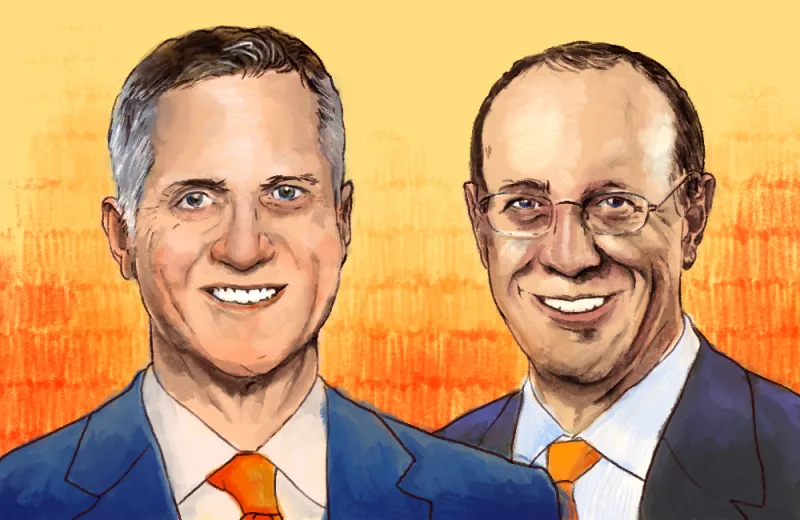The Brothers of King Street Let Down Their Guard

Brian Higgins and O. Francis Biondi Jr. (Illustration by II)
In a rare interview, Lifetime Achievement Award honorees Brian Higgins and O. Francis Biondi Jr. reflect on their relationship and building one of the world’s top hedge funds.
Trans-Canada Capital
O. Francis Biondi Jr.
Tarik Serri
Brian Higgins
Goldman Sachs

